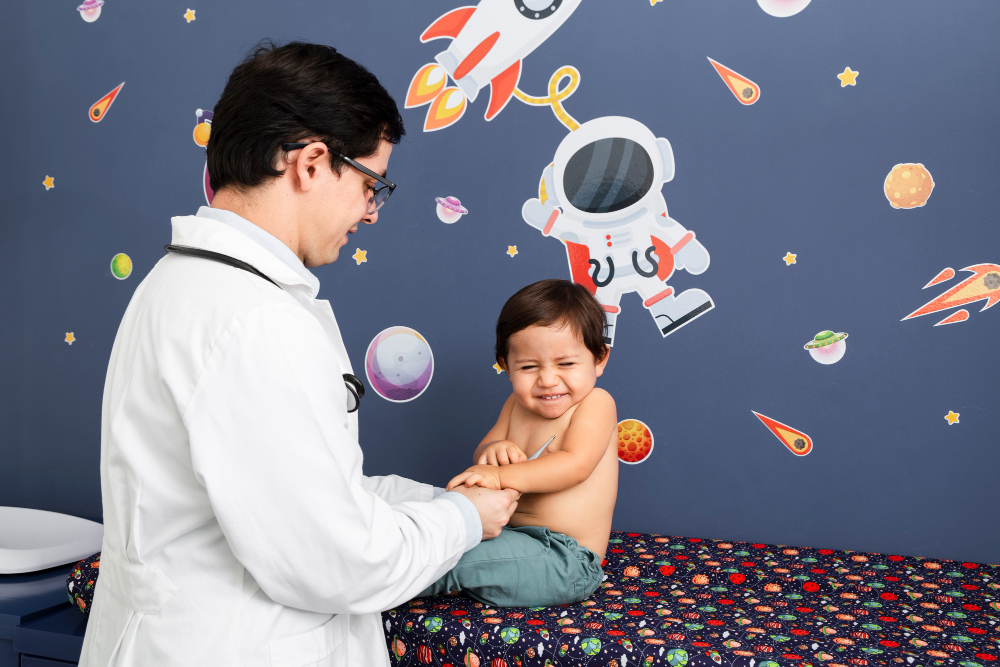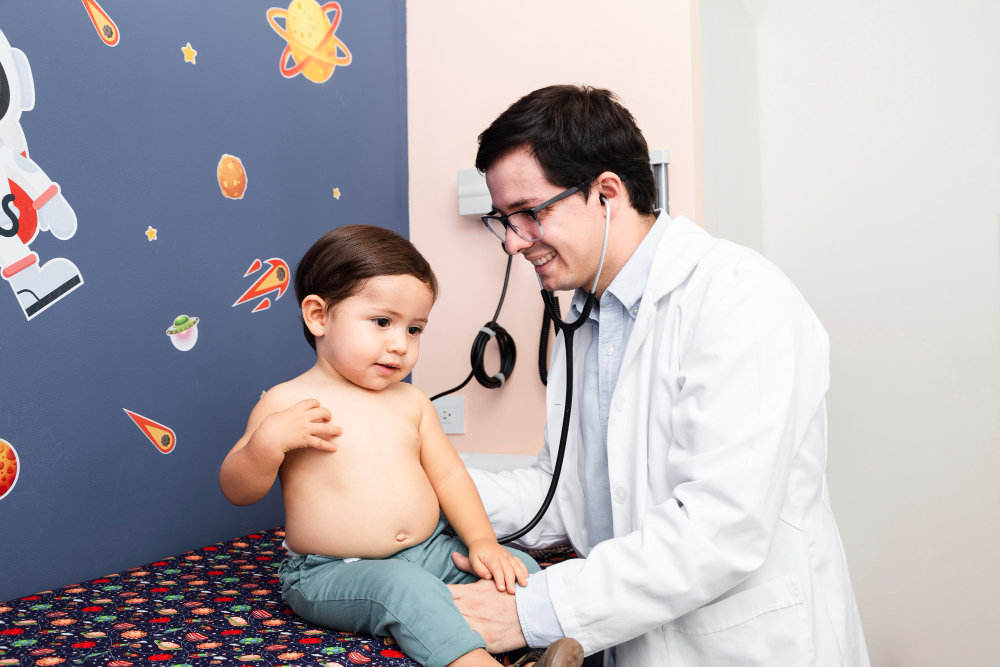
General paediatrics focuses on the medical care and well-being of infants, children, and adolescents. Paediatricians are specialists trained to manage a wide range of childhood illnesses, developmental concerns, and preventive healthcare needs. The goal of paediatrics is to support children’s growth and development, providing both medical treatment and guidance to families to ensure a healthy future.
Scope of General Paediatrics General paediatrics covers a broad spectrum of healthcare needs for children, including:
- Newborn care, such as monitoring growth, early detection of congenital conditions, and feeding advice.
- Immunizations to protect against common childhood diseases, including measles, mumps, rubella, polio, and whooping cough.
- Routine check-ups and developmental screenings to track physical, mental, and emotional development.
- Common childhood illnesses like respiratory infections, ear infections, stomach viruses, and skin conditions.
- Chronic conditions, such as asthma, allergies, and diabetes, which require ongoing care and management.
- Nutritional advice to ensure proper growth, including addressing issues like obesity or malnutrition.
- Behavioral and developmental disorders, such as ADHD, autism, and learning disabilities, which may require early intervention and support.

Diagnosis and Treatment Paediatricians are trained to diagnose and treat a wide variety of health conditions specific to children. They perform:
- Physical examinations, including growth and developmental assessments.
- Laboratory tests and imaging, such as blood tests, urine tests, and X-rays, when necessary to diagnose health issues.
- Management of acute illnesses, ranging from minor colds and infections to more serious diseases like pneumonia or meningitis.
- Chronic disease management, helping families navigate long-term conditions like asthma, eczema, or congenital heart defects.
Paediatricians also offer guidance on child safety, hygiene, nutrition, and overall well-being, helping parents navigate the challenges of raising healthy children.
Preventive Care Preventive healthcare is a cornerstone of general paediatrics. Regular check-ups and vaccinations are essential to safeguarding children from preventable diseases and ensuring they reach developmental milestones. Paediatricians provide parents with valuable insights into issues like:
- Immunizations: Vaccination schedules are designed to protect children from serious diseases like diphtheria, tetanus, and hepatitis B.
- Screenings: Regular screenings help detect developmental delays, vision or hearing issues, and other health problems early on, allowing for timely intervention.
- Healthy lifestyle advice: Paediatricians advise on proper diet, exercise, and sleep routines to promote physical and mental well-being.
Developmental and Behavioral Care Children go through several stages of physical and emotional development. Paediatricians monitor these changes to ensure children meet key developmental milestones. If any concerns arise, such as delays in speech or motor skills, paediatricians may refer families to specialists for further evaluation. They also assist parents in managing behavioral issues, including temper tantrums, sleep disturbances, or anxiety.
Care for Acute and Chronic Conditions Paediatricians are trained to treat both short-term illnesses, such as colds, fevers, and infections, and long-term conditions, such as asthma or epilepsy. For acute conditions, they offer treatment and advice for managing symptoms, while for chronic conditions, they provide ongoing support to help children live healthy, active lives.
Parental Guidance and Support In addition to treating children, paediatricians are a key resource for parents. They offer education on topics such as breastfeeding, nutrition, injury prevention, and emotional well-being. This guidance helps parents make informed decisions about their child’s health and fosters a collaborative approach to care.